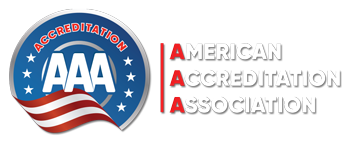Concluding a year of accomplishments in 2023 and setting the stage in 2024 for continuing significant reforms for Virginia’s students and teachers, the Virginia Department of Education remains focused on improving student performance and achievement in the commonwealth’s educational system.
“We have spent this year focused on supporting Virginia’s students as they work to recover from the pandemic closure’s effects on their academic progress. Those aftereffects run deeper than many realized, and we are standing shoulder-to-shoulder with our parents, teachers, and school divisions as we all work to help our students catch-up and get a step ahead,” said Commissioner of Public Education Lisa Coons.
“These learning loss recovery efforts remain our focus in the new year, as well as improving Virginia’s special education programs, developing resources to support student’s mental health, bringing more innovative educational options and programs to Virginia’s students, developing a student-based funding formula for our schools, remaining a national leader in ensuring access to high-quality early childhood care and education services, and continuing to strengthen our standards, assessments, and accountability to help ensure that Virginia students are prepared for success in life,” continued Coons.
ALL In Learning Loss Recovery
Launched in September to aggressively support students in their recovery from Virginia’s extended classroom closures during the pandemic, Virginia school divisions have created specific ALL In plans tailored to their students’ needs and division’s challenges in tackling learning loss, chronic absenteeism, and implementing science-based literacy instruction.
These plans include proven methods to boost student achievement, including high-intensity tutoring for students, focused plans addressing chronic absenteeism, as well as moving forward on implementing the Virginia Literacy Act, core literacy instruction beginning in each school division in the Fall of 2024.
Innovative Options for Students
Continuing the department’s work with its higher education partners bringing more innovative educational options to students and communities, this year saw the establishment of Virginia’s first lab school, the VCU x CodeRVA Lab School, and additional lab schools have already received approval.
In all, 20 current College Partnership Laboratory Schools grant applications are in motion and 11 full applications have been received by VDOE. More applications are expected from higher education institutions and their school division partners in early 2024.
The department is also expected to undertake the work of high school redesign in 2024, with an emphasis on developing a framework for high schools to better prepare students for post-graduation success, whether in the workforce, the military, or in higher education.
Learning Acceleration
The department also implemented the nation’s broadest program of family microgrants, dedicating nearly $66 million dollars to help address the pandemic’s impact on students’ educational progress. The Learning Acceleration Grants program has been received by the families of nearly 33,000 Virginia students and has already resulted in over 412,000 hours of direct core academic subject tutoring and therapy services being delivered in 2023.
The Learning Acceleration Grants program continues for qualified, lower income students until May 30, 2024.
Student Mental Health and Special Education
Providing resources for student mental health and improving special education programs were an increased focus this year. The department implemented its Special Education Work Group comprised of parents, educators, school division leaders, and support organizations to assist in developing the 2024 Roadmap for Special Education. The department also began enhancing its monitoring efforts and working towards providing intensive supports to school divisions having difficulty delivering effective special education programming. These moves came out of comprehensive, external evaluations of Virginia’s special education programs undertaken by two leading national experts at the request of the Superintendent.
The Special Education Work Group began its work in October of this year, and the Roadmap for Special Education is expected to be delivered in March of 2024.
The Department also launched a new Office of Behavioral Health focused on the mental and physical health of all students. The Office is focused on ensuring that Virginia’s “Right Help, Right Now” behavioral health supports for students are a priority. More behavioral health resources for students will be announced in 2024.
Early Childhood Education
To help prepare all children for kindergarten with quality teaching and learning experiences meeting their unique needs, this year the department fully implemented the Unified Virginia Quality Birth to Five System (VQB5) to measure and help improve the quality of all publicly-funded birth-to-five classrooms and support families to choose quality programming across program types.
All publicly-funded birth-to-five programs, including approximately 3,600 public schools, child care centers, and family day home programs with approximately 12,000 “classrooms”, are now required to participate in VQB5, with the first quality ratings published in Fall of 2024.
Governor Youngkin has announced The Building Blocks for Virginia Families initiative for 2024. Building Blocks for Virginia Families is designed to ensure sustainable options for childcare remain available for Virginia families, while helping families choose the early option that best supports their children and ensuring they enter school ready to learn.
Teacher Licensure
With an intense focus on improving the teacher licensure process overall, the department has reduced the time required for processing complete applications from a previously typical more than one month to now an average of two weeks. Additionally, renewal backlogs for current teachers have been eliminated.
The department also introduced the Virginia Licensure Online system (VALO) to help modernize the teacher licensure process and make the application experience more user-friendly for first-time applicants. VALO will be expanded in 2024 to assist current teachers with the renewal process.
Additionally, to help school divisions address teacher shortages in their area, the department initiated the Grow Your Own initiative, an educator preparation strategy focused on developing and employing individuals with a vested interest in education from within the local community through the state’s registered teacher apprenticeship program. Designed to empower communities to develop solutions unique to their own local needs, GYO is focused on addressing the primary challenges—financial, recruitment and preparation—facing divisions attempting to fully staff their schools.
